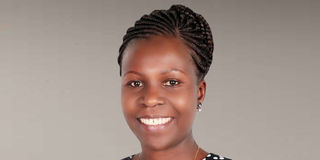Kenya's Salome Bukachi named in WHO team to prevent next pandemic

Prof Salome Bukachi. She has been named in a team of 28 international commissioners tasked with preventing the next pandemic.
University of Nairobi don, Salome Bukachi, has been named in a team of 28 international commissioners tasked with preventing the next pandemic.
The commissioners are from Africa, Asia, Europe, the Middle East and North America.
According to the project run by Lancet Commission on Prevention of Viral Spillover and supported by the World Health Organisation (WHO), some $41.6 billion (Sh6 trillion) would be needed every year to realise the goal.
Bukachi, an associate professor at the UoN’s Institute of Anthropology, Gender and African Studies, has a background in medical anthropology with a bias in infectious diseases.
“Budgets for effective pandemic preparation vary, with the World Bank and WHO determining it would cost $41.6 billion annually to build and implement an effective prevention system,” the commission said.
“The first year of the Covid-19 pandemic cost more than $2 trillion, equivalent to a 3.4 per cent decrease in global GDP.”
The commissioners will evaluate and synthesise evidence on the drivers of viral spillovers, identify and evaluate strategies and interventions to prevent the spillovers, provide recommendations for research on viral spillovers and examine the equity benefits of viral spillover prevention.
They will also assess the co-benefits and trade-offs of viral spillover prevention, identify socio-economic and political challenges and opportunities for implementing spillover prevention and develop recommendations that can be adopted and adapted by governments and other stakeholders.
“As the world moves on from Covid-19 and risks of new pandemics rise, a global team of experts to design an action plan for stopping the next contagion is vital,” Lancet said while explaining why – together with the Coalition for Preventing Pandemics at the Source (PPATS) – it is convening the commission.
“The commission comes at a time of pandemic amnesia. Despite surges in coronavirus and a range of other disease spread from animals to humans, governments, donors and the general public are choosing to forget that new pandemics are all but certain,” Lancet said.
The commission is led by Prof Latiffah Hassan from Malaysia, Prof Raina Plowright and Dr Neil Vora both from the US.
“The 28 experts are a wide range of disciplines, including epidemiology, microbiology, ecology, human medicine, veterinary medicine, food systems management, anthropology, behaviour and economics policy. With balance between genders and the Global North and South, commission members will maintain a focus on equity in developing prevention strategies,” Lancet added.
The team will conduct original research and pull from the latest science and examples on the ground of how spillover prevention measures can merge with other considerations – such as food security and health care – to prevent pandemics.
“This commission is focused on preventing disease outbreaks in the first place. This is far more equitable, cost-effective and brings many other benefits. Through the work of this commission, we will be better positioned to prevent another crisis instead of merely reacting to it,” said Sonila Cook, the co-founder of PPATS.
Prof Latiffah Hassan said many countries struggle to navigate the often-conflicting demands of economic development and maintaining an affordable supply of food for growing populations while safeguarding the health of rural residents.
“These communities face the greatest risk of emerging pandemics. Like every other part of our global society, they have a right to decent health care. Preventing spillover protects everyone everywhere,” the Veterinary Medicine professor at the Universiti Putra said.





